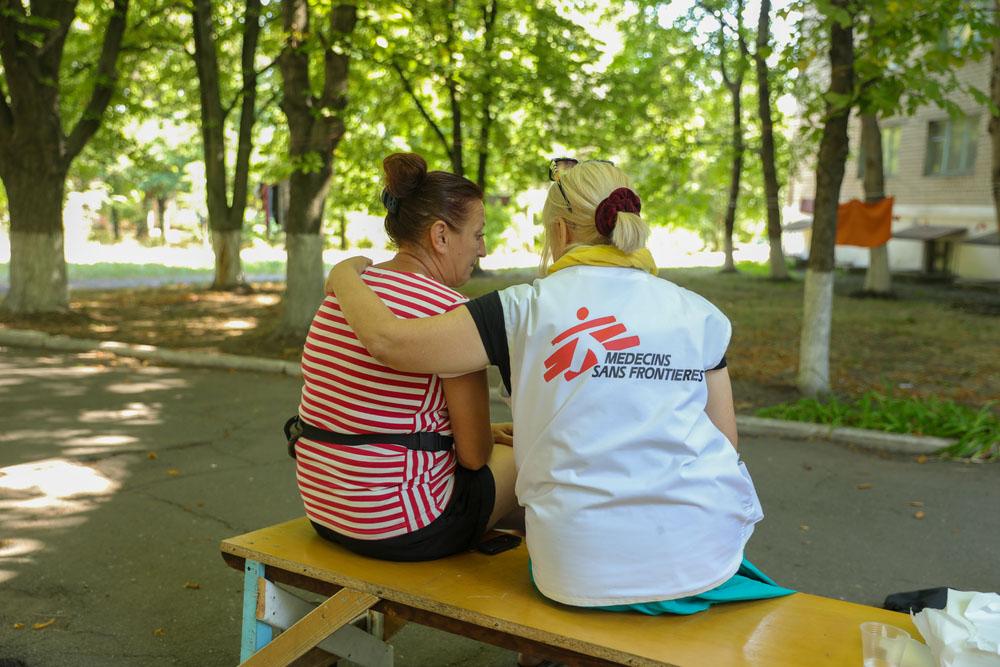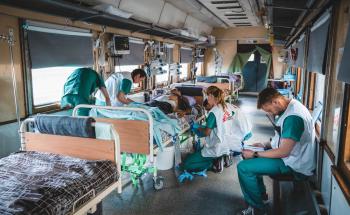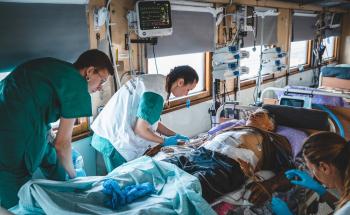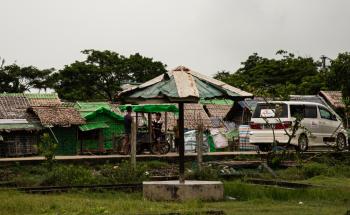Due to the war in Ukraine, millions of people have had to flee their homes in a desperate attempt to escape death and injuries. This had made mental health needs enormous, and addressing them is a priority for MSF teams. With some of them having lost family members and others being traumatised physically and emotionally. Here are the stories of our patients who had to flee their homes and MSF staff in the Kherson region in the south of the country because of the war and how this has affected their mental health.
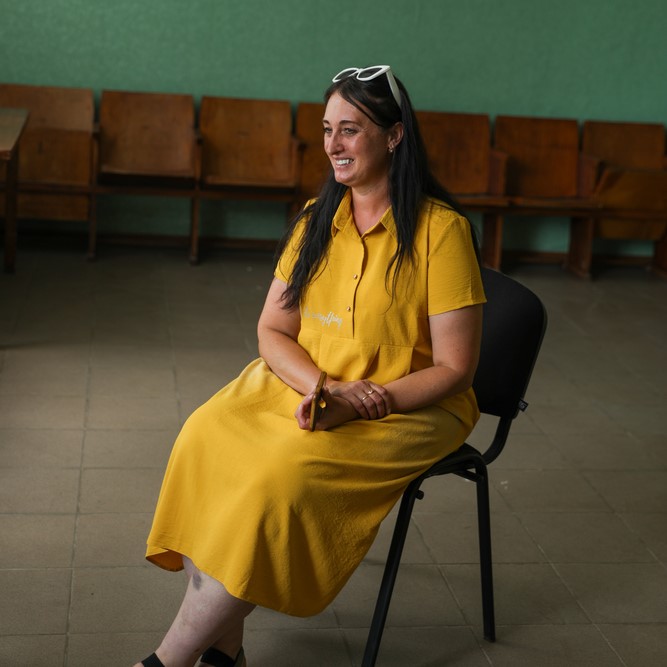
Everything was destroyed in the centre of our village, including the village council and the police station. Everything was on fire. We used to shelter in the basement day and night.
My colleague's husband was shot in the leg and detained for two weeks. Later he was allowed to go home but then they came back. They fired a gun just above his head to frighten him. After that he couldn’t stay in the village anymore; he left his farm and moved here.
I left the village with my husband and two children three months ago. We travelled in a convoy that looked like a thousand cars. We passed through 27 checkpoints. At each checkpoint, they stopped the cars, opened the trunks, and checked our documents and phones.
It is very difficult psychologically. Our children saw everything but thank God they didn’t cry too much. They knew their mum and dad were with them.
People from our village told us to come here. They’re here too.
We knew we were leaving everything behind. But we know that we will return. We are still young and we will rebuild everything. Now we just want this war to end so we can go home.
*Name has been changed for security reasons
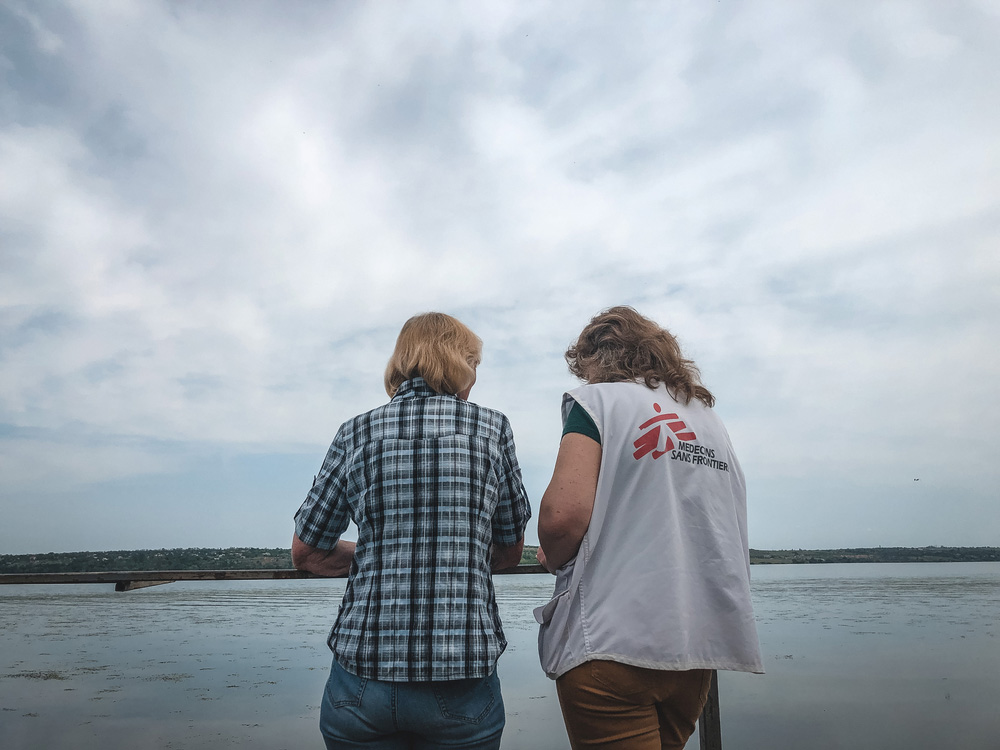
I have five children. When a fighter jet flew over our village for the first time, they were very scared. I was scared, too. Our windows shook from the blasts and the explosions were so loud. My eldest daughter and I decided to sleep in shifts. She would sleep until 1am, and then it was my turn.
In April, we decided we had to leave. Our parents stayed in the village. They are elderly people and they’re not in good health. It would have been too difficult for them to make the journey. It’s not easy to communicate with them now, but we try to call them via messenger.
My husband wasn’t there when we left, he was away working in another town. We left the village together with my brother, his children, my children – all of us – in his big van. We were stopped at about 80 checkpoints. The children were crying… it was awful. We left at 9am and reached the city of Kryvyi Rih around 11pm.
Then we moved to the city of Cherkasy in central Ukraine and stayed there for two weeks before coming here
*Name has been changed for security reasons
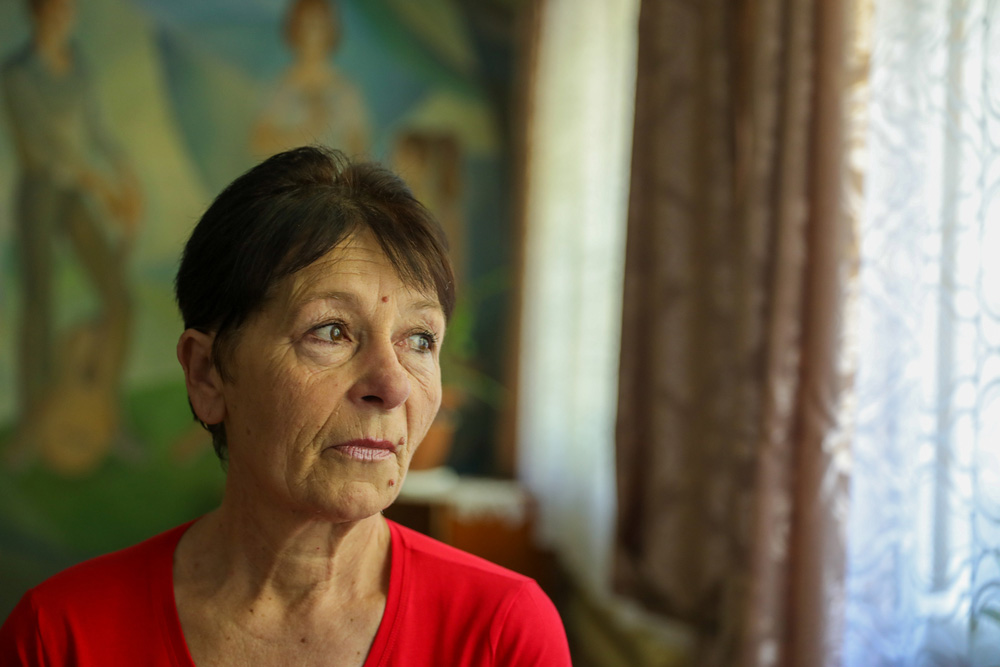
There was shelling every minute, every second – day and night. It’s like every missile was a roll of the dice, they hit places randomly and people died. I knew so many people that died, including my friend.
My mother and I used to shelter in the basement. But the basement is so deep, and my mother is 86… it wasn’t easy.
What we experienced was terrifying. A horror movie is nothing compared to what we see in Ukraine now.
The first time we tried to leave home, we travelled with our neighbours by car but we were turned back at a checkpoint. We were not allowed to leave.
I left my mother at the checkpoint and went home to get my bicycle, so my mother could lean on it while she walked. This made it easier for us to reach another checkpoint but once again, we were turned back.
My mother got on the bicycle and I started to wheel her home, but then we met another woman who told us that it was finally possible to pass the checkpoints.
It was still so hard to leave home. We didn’t reach the displacement shelter and dormitory until midnight that day. We’re here now but we still want to go home. Everything is destroyed there, but even if it’s just rubble now, it’s still our home.
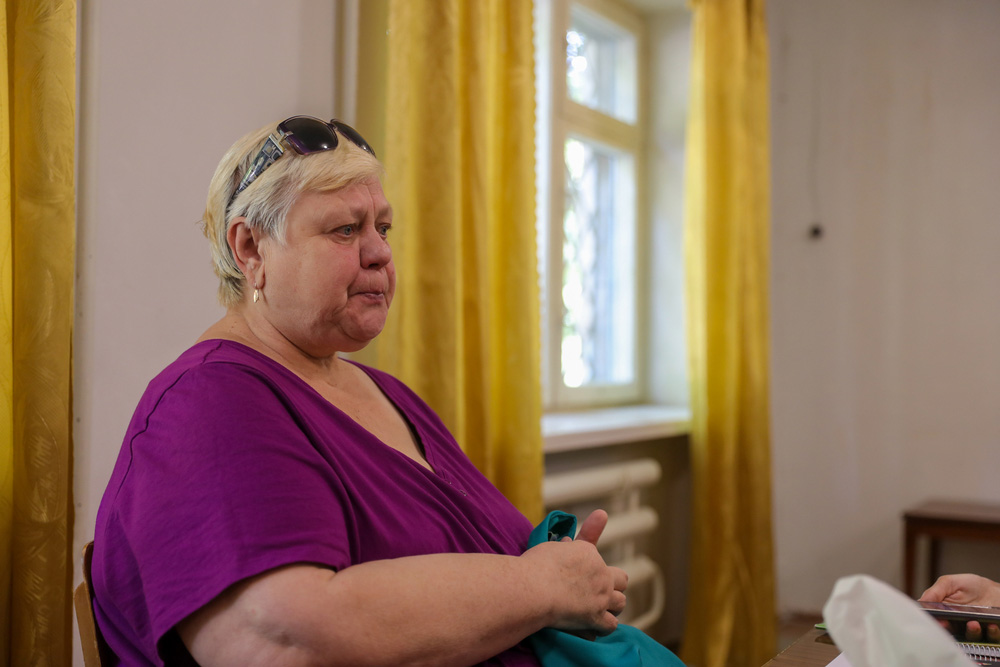
I lived, worked my whole career, and retired in the same village. We were preparing to become older, we wanted to live in comfort. Last year we replaced the roof, and every year we make repairs to the house to keep it in good condition.
Then, on 27 March, there was shelling, and we were forced to leave our home.
I didn't want to hide in the basement because I was afraid that the house would collapse on us. We have an outhouse that we use as a kitchen in summer. The walls there are thick, and I felt we would be safer there. There was shelling through the night, and we stayed in the outhouse. When morning came, I realised I just couldn't do that anymore, so we decided to travel to Nikopol.
I started packing at around 7 am, and that’s when the shelling started again. I only had time to grab one bag. I packed our documents and a couple of other things – that's all. We thought we were leaving for a few days or a week. But we still haven’t returned.
We were staying in Nikopol, but my husband had to return home to work; I decided to go with him.
It was Easter when our house was destroyed. But our friends told us to come and stay in their house; they told us that their part of the village wasn’t being shelled… but as soon as we got there, the shelling began.
We stayed there for several days, but after that, I could not do it anymore. My husband stayed in the village, and I arrived in the city of Kryvyi Rih on July 19.
My granddaughter is seven years old. When we showed her a photo of our destroyed house, she told me: "We don't have a ceiling in the room. Granny, let's put a round window there? We could put up a new wooden fence too." She talks about building new things to comfort me. When we ask what her greatest wish is, she says, "I want to have my own home."
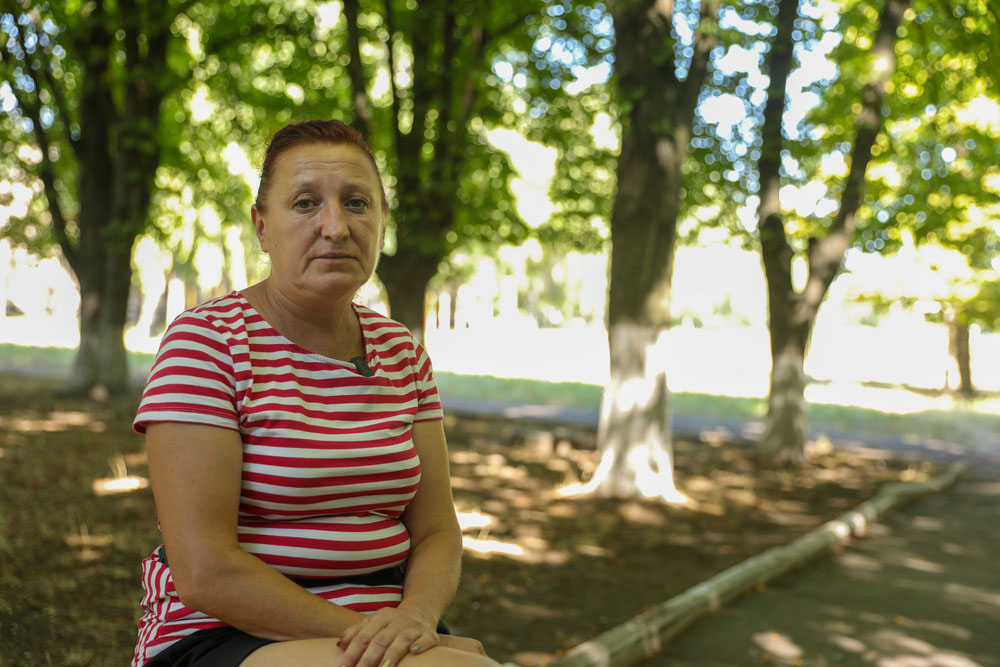
When the Russian soldiers came to our yard, we were in the basement. They told us to come outside, checked our documents and then sent us back to the basement. Then they moved into our house and started living there.
When the Ukrainian soldiers entered our village, they asked if anyone wanted to leave. On the same day, we went to Kryvyi Rih. We have friends here who sheltered us, there were 14 people living in their house, including us.
Later on, we asked for a place to stay at the displacement shelter; we had been sleeping on the floor at our friends' house, and my husband was recovering from surgery... My husband was shot in the back when we were still at home. After being shot, he stayed in the basement for a month and a half without treatment or medicine – we had nothing. Everything was destroyed.
On April 3, we found out that my son had died. They told us that his body was in a morgue in Kryvyi Rih, and now we have buried him.
We are recovering, but we can’t forget what we went through. We have no home now, it was destroyed. But we still want to return and rebuild our village. We thank this city for sheltering us. But home is home.
